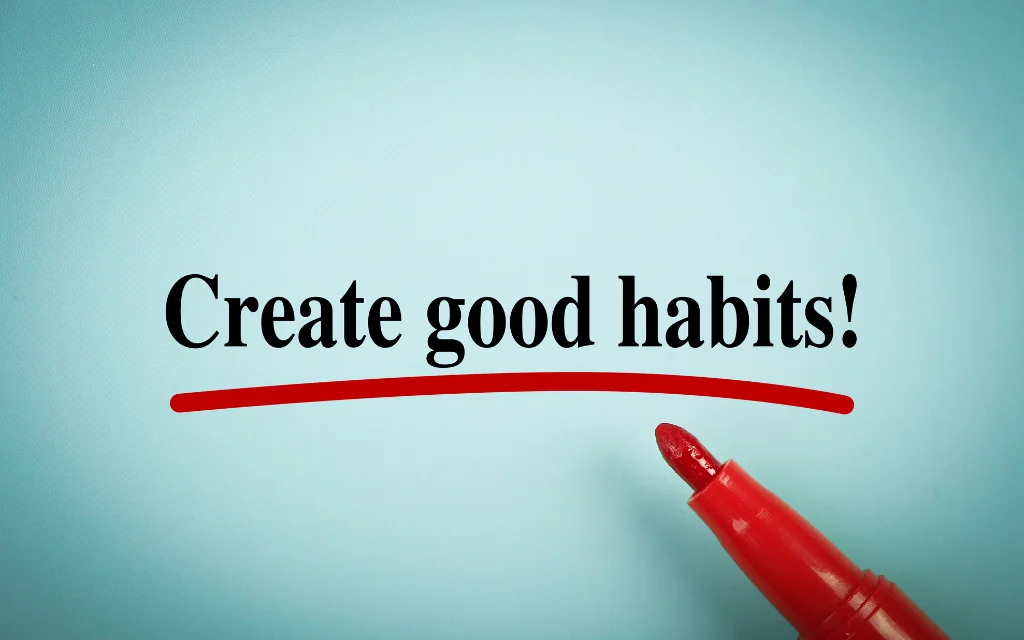Giving upon today? Remember, tomorrow is a beautiful gift and a fresh opportunity to try again, no matter how difficult your day has been.
Angry with myself, I rolled over back to sleep after clicking the snooze button and got back into bed, my eyelids heavy with sleep. I chided myself, “You gave up once again.”
Inspired by Hal Erold’s book The Miracle Morning, two months prior, I had made it a practice to rise early (about five in the morning) each day in order to write for thirty minutes, exercise for thirty minutes, and meditate for fifteen minutes.
The new habit felt fantastic when I first started. I was doing it, and I was so pleased of myself! I truly felt the advantage of being busy before everyone else woke up, in addition to the gratification I had from reaching personal goals. It had a positive ripple effect on the rest of my life; I was driven, cheerful, and ready to go to work.
After around two months, things resumed as usual. I had gone to bed later the evenings before, whether it was for a movie or cocktails with coworkers, and fatigue, possibly exacerbated by the new routines, soon took over. I did not bounce out of bed that morning, and instead of beginning my “miracle morning,” I wanted to roll over.
If you are a person like me, you have probably had the experience of forming new habits only to abandon them after two, three, or even months. New Year’s resolutions are the most well-known. Who has not made a self-promise to visit
We take up new habits, only to let them die away after few weeks.
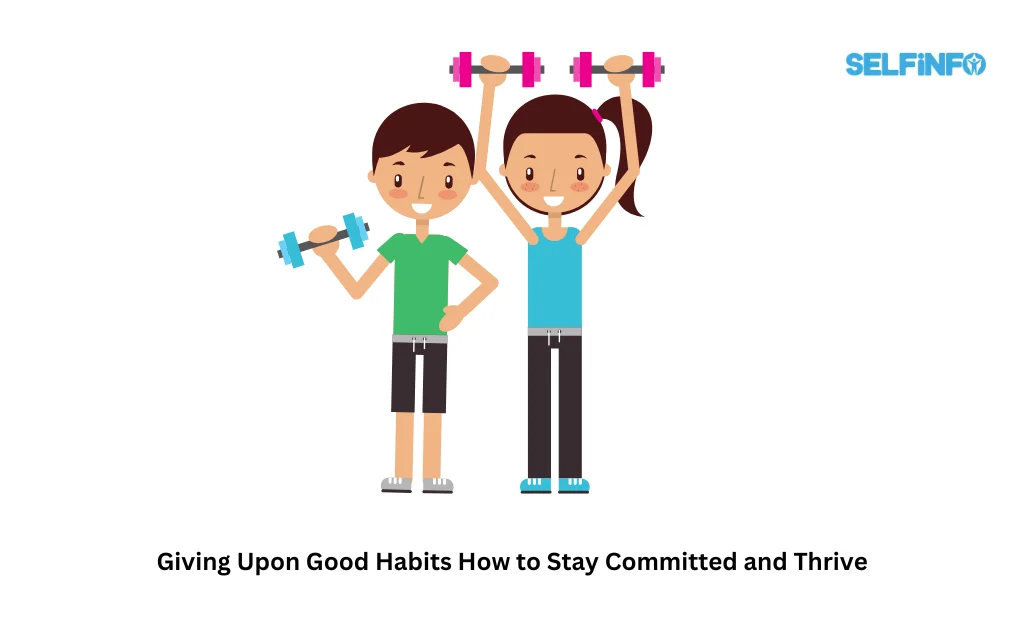
Have you ever noticed the difference in emotion between the beginning and the end?
We can not picture a day in our lives when we begin on January 1st when we will not get out of bed and head to the gym. “How could I possibly not have the motivation?” we ask ourselves. It is so thrilling! And why did not I do it earlier?
However, procrastination becomes the new habit somehow. Guilt and a decline in self-esteem accompany procrastination.
A persistent voice in your head reminding you that you have failed this or that can have a very detrimental impact on your life. My goal is to make you feel good about yourself despite your human frailties and inability to maintain new habits.
Giving up new, healthy habits does not mean you have to feel bad about it. We are all doing it (or not doing it), so you are not alone.
I used to get really mad at myself when I broke a new routine because it made me feel like I had not accomplished my objective. However, I believe that we need to adopt a different viewpoint unless you are in a life-threatening scenario and absolutely need to modify your lifestyle.
Although everything could be better, you cannot dispute that you have spent your life doing something better for yourself, even if it was only for a brief period of time.
Have you quit smoking and then resumed three months later? Consider this: your body was healthier for three months, and you most likely regained a few minutes of your life. Is not quitting smoking for three months a year preferable to not quitting at all? Would it not be easier to deal with if I informed you right now that your goal is to quit smoking for three months each year?
We can handle these new behaviors more easily in a few ways. I believe we should put greater emphasis on the fact that we have benefited ourselves even if we have not maintained it. Here are three key factors to think about:
1. Set a limit in time for your new habit.
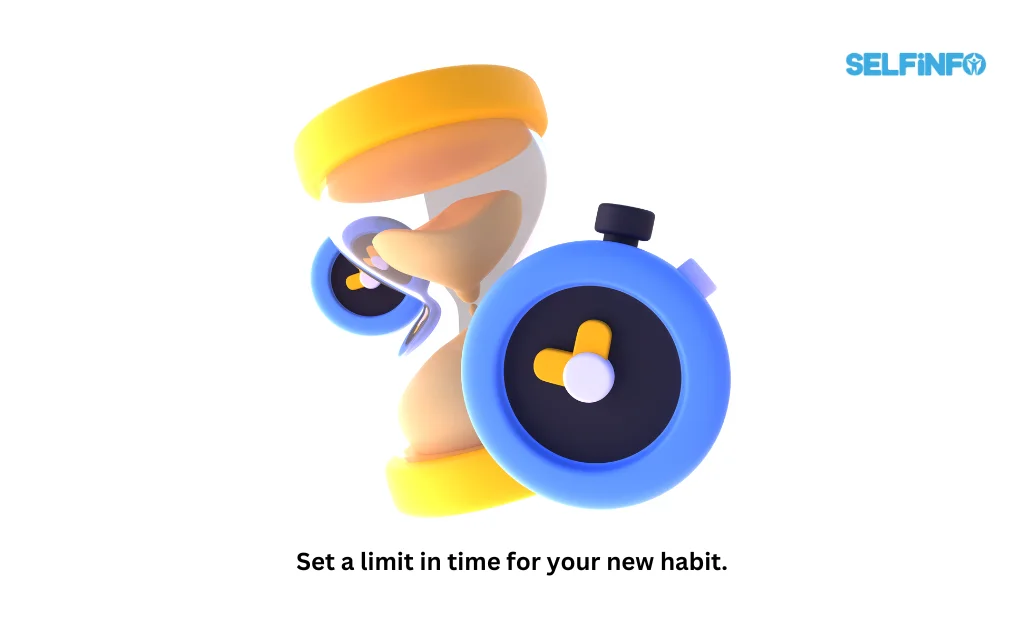
Why not specify the end date at the beginning if you know you would eventually give up on it anyhow? Although it may seem straightforward, the main distinction is that you have complete choice over whether to stop. Additionally, it will be simpler to absorb, and you may be more inclined to stick with the practice for longer than you would have if you had not given yourself a deadline.
I have personally attempted the experiment. I began a new healthy routine on June 7th: reading the news, writing, meditating, and rising early. Naturally, I was thrilled about this new habit, but like all other healthy behaviors that were outside of my comfort zone, I assumed I would eventually give up.
What if I tell myself that it is a “summer good habit” and that I only need to stick with it until August 7th? That is what I thought. Is not that going to make things easier? If you tend to give up after a few days, you can shorten it to one week.
2. Reflect on what you have learned or gained, even if the habit has stopped.
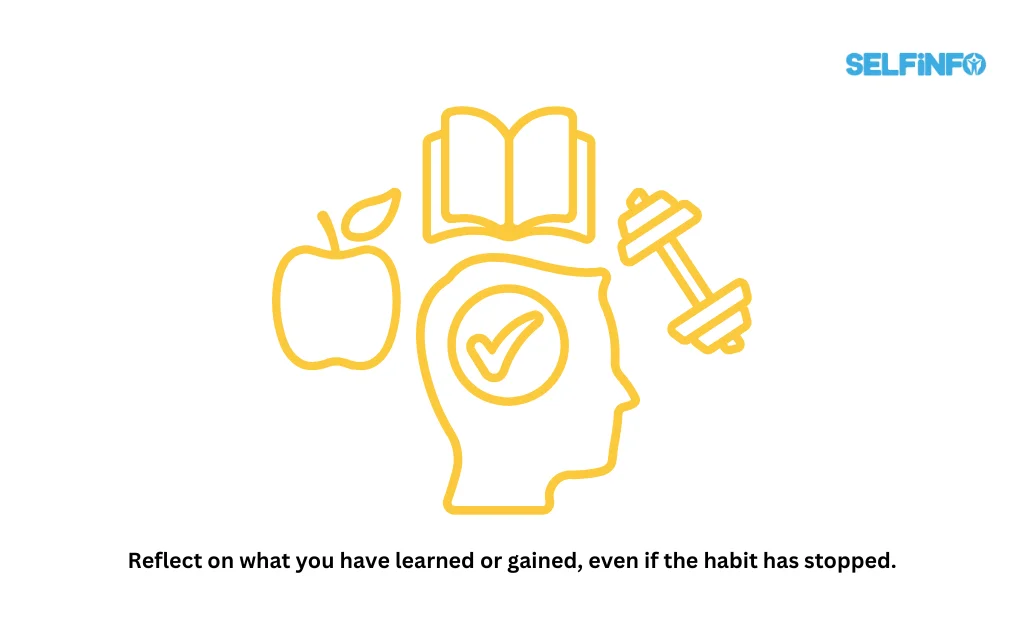
Stopping doesn’t mean you haven’t done anything productive. You performed something different for three months, and your body or brain undoubtedly profited from it.
Along with the immediate consequences of this new habit, you should also think about the fact that you have gained new knowledge and likely increased your self-awareness. Suppose you made the decision to completely give up booze. You will have gained knowledge about yourself even if the new habit is only maintained for a month.
I just made the decision to try not drinking any alcohol at all on Friday nights when I went to the pub with my coworkers. Even though I was drinking on a normal Friday night, I was surprisingly cheerful and upbeat as the night went on.
I was enlightened by this! I mistakenly believed that my excitement was a result of my alcohol consumption, but in reality, I was “drunk with social contact.” This is precisely what I am trying to say: even if I only did this twice in a row, I gained knowledge about myself that I may use going forward.
3. Step back and reconsider.
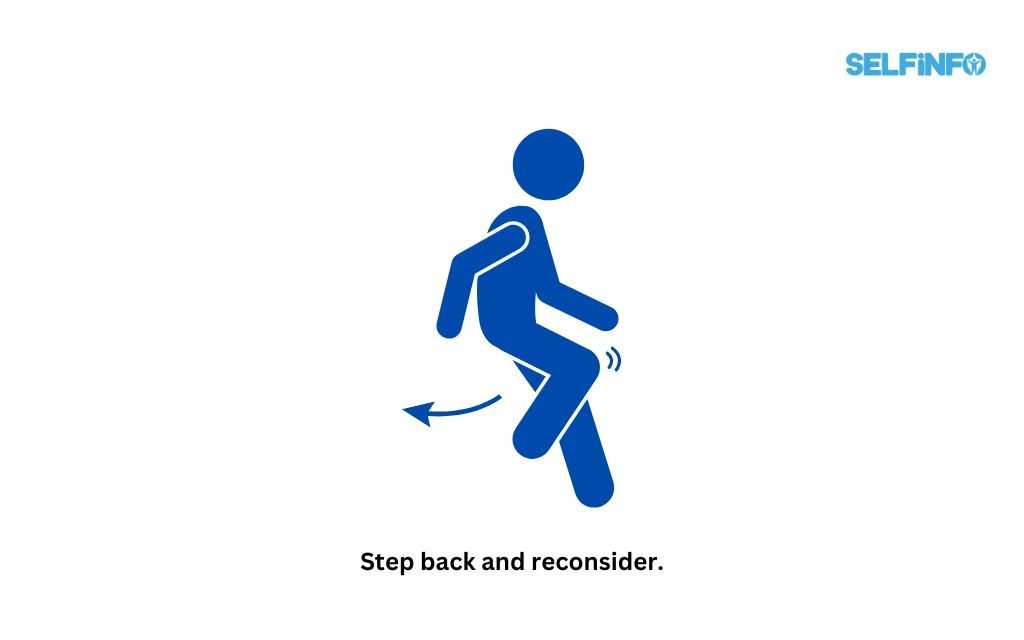
In many fields, working intermittently is a healthy practice. It has been scientifically demonstrated that, as a runner, I will benefit more from alternating fast and slow intervals during a run as well as from alternating workouts and rest during a training regimen than from always running at the same speed or running without ever recuperating.
The same is true for the learning process: It is commonly recognized that taking short breaks or switching to another activity during final exam preparation is good for the brain.
We could even adopt a more general viewpoint: Balance is key to leading a healthy life. Why not switch up the new, healthy routines? A few instances are: After a month of abstinence, resume your regular bread consumption. For one month, abstain from drinking on Friday nights, and then quit. Additionally, life is about trying new things.
I am at the beginning of a fresh streak of habits as I write this post. I have made the decision to write on my blog for thirty minutes each day before breakfast. I have made the decision to only maintain this new habit for a few months, until my next scheduled trip, because routine disruptions (like holidays) frequently cause my new habits to break.
It makes me sad to think about giving up this habit that I love so much (keep in mind, it is just day two!), but I can continue if I so choose. However, since it was part of the plan, I will not feel bad or unfulfilled if I do stop on my scheduled end date. Even if the habit just lasted a month, I will still feel like I have accomplished my aim. When I return home, I want to be eager to start it up again.
It is admirable that you are making an effort to improve your life, but it should not lead to self-loathing because you can not maintain it. If it happens, it will be detrimental and cause tension.
Enjoy the journey, take baby steps toward a better lifestyle, and pause to consider what you have discovered about yourself. This is the most effective way for the change to benefit both your body and mind.
Giving Upon Good Habits
Giving up on good habits can feel frustrating, but every setback is an opportunity to learn and grow. By staying patient, motivated, and committed, you can overcome challenges, build consistency, and create lasting positive change in your life.
